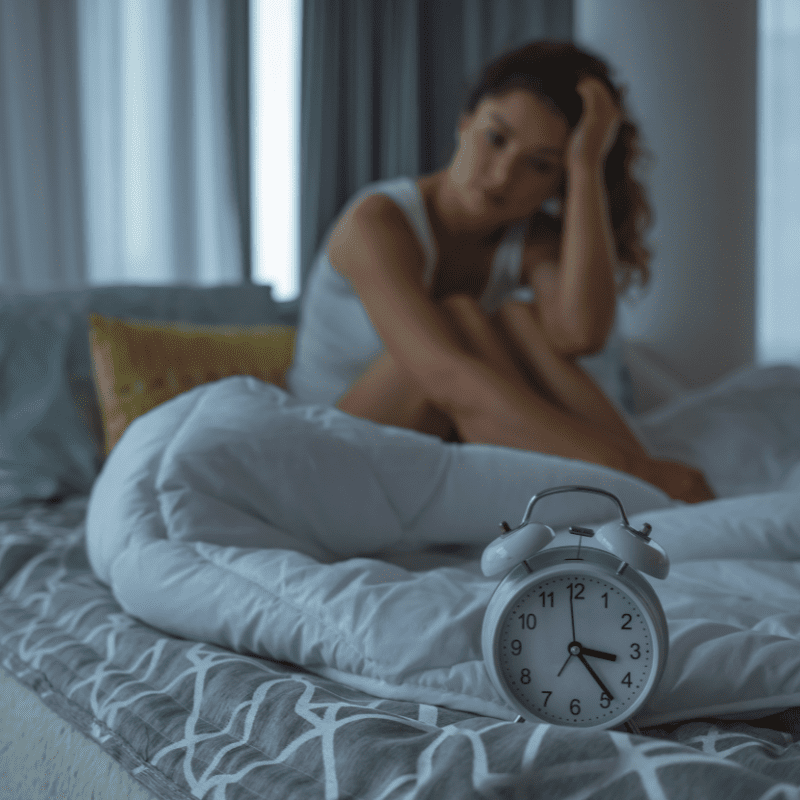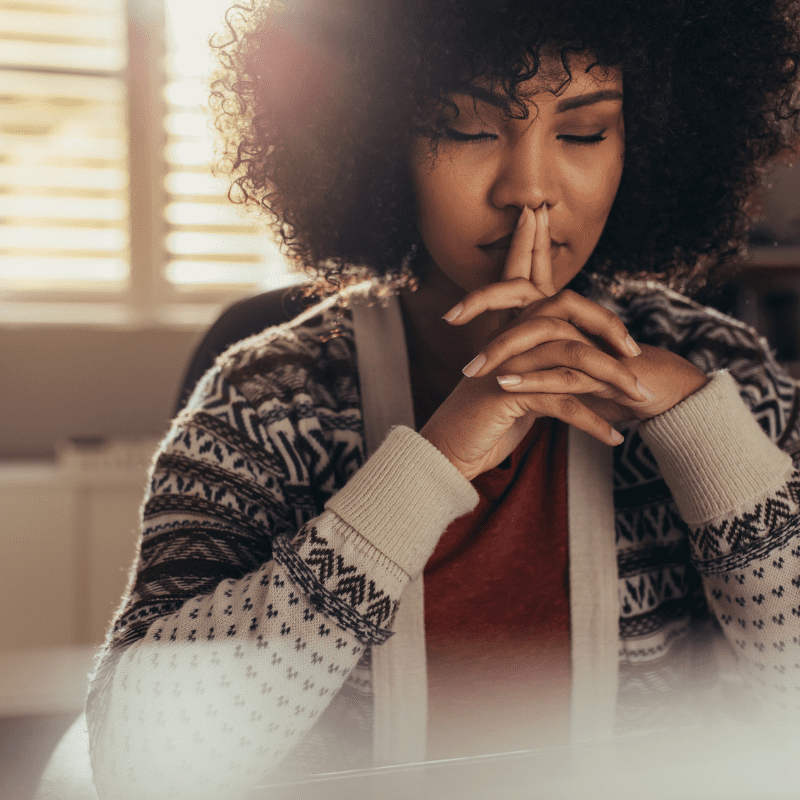How to cope with anxiety: 8 tips and strategies
Mental Health Awareness Week 2023 centres on the theme of anxiety.
Anxiety is one of the most common mental health problems, with a little over 1 in 10 people in the UK living with an anxiety disorder at any one time.
While the condition can be distressing, there are lots of strategies we can use to reduce anxiety or at least manage it better. We have identified our favourites in this blog.
What is anxiety?
Anxiety is a normal response to stress. It is a feeling of unease, such as worry or fear, that can be mild or severe. Anxiety can be triggered by a variety of situations, including work, school, relationships, or health concerns. It is a natural part of the body’s “fight or flight” response, which prepares us to respond to perceived threats. However, when anxiety becomes excessive or persists for a long time, it can interfere with daily life and be a sign of an anxiety disorder. Anxiety disorders are the most common type of mental health disorder and include panic disorder, social anxiety, and generalised anxiety disorder.
What are the symptoms of anxiety?
Anxiety can cause a number of physical and psychological symptoms and may also cause changes in a person’s thought patterns:
Physical Symptoms
- Heart palpitations
- Tense or aching muscles
- Sweating
- Shaking or trembling
- Dizziness or fainting
- Digestive problems, stomach aches or nausea
- Shortness of breath, hyperventilation or panic attacks
- Tiredness
- Difficulty sleeping


Psychological symptoms
- Excessive energy or feelings of being on edge
- Difficulty concentrating or going blank
- Irritability
- Racing thoughts or ruminating
- Unpleasant or intrusive thoughts
- Excessive worrying
- Feelings of time speeding up or slowing down
- Feelings of dread or impending doom
The symptoms of anxiety can be distressing and can sometimes lead to further anxiety or panic. Fortunately, there are things you can do to help you to cope with anxiety and feel more in control.
Strategies to cope with anxiety
Get moving
Exercise is an effective way to reduce anxiety. Physical activity releases endorphins, which are natural mood-boosters that can help you to feel more relaxed and less anxious. Try and aim for at least 30 minutes of moderate exercise each day, such as walking outdoors, swimming, or yoga.
Take a coffee break
Caffeine and alcohol can both increase anxiety levels. Caffeine is a stimulant that can make you feel jittery and nervous, while alcohol is a depressant that can affect your mood and sleep quality. Try limiting your intake of these substances or avoiding them altogether.
Challenge negative thoughts
Anxiety often involves negative thoughts and worries. These thoughts can be irrational and untrue. To challenge negative thoughts, ask yourself if they are based on facts or assumptions. Consider the evidence that supports or refutes your worries and try to reframe them in a more positive and realistic way.
Talk about it
Social support can be an effective way to manage anxiety. Often simply voicing your worries out loud helps you to process them, see them more rationally and find solutions (or realise they’re unfounded). Talking to someone you trust about your worries and fears can also help you to feel less alone and more supported.
Stay in the moment
Mindfulness is a type of meditation that involves focusing your attention on the present moment. It can help you to calm your mind and reduce anxious thoughts. One simple and effective mindfulness technique is the 5-4-3-2-1 method. This involves using your senses to ground yourself in the present moment and divert your attention away from anxious thoughts.
The method works by getting you to identify, in turn:
- 5 things you can see around you
- 4 things you can touch
- 3 things you can hear
- 2 things you can smell
- 1 thing you can taste
By focusing your senses on the present moment, you can shift your attention away from anxious thoughts and feelings and reduce your overall level of anxiety.

Allow yourself time to worry
If you are unable to stop negative thoughts and worries, take back some control by scheduling some daily ‘worry time’. Set a specific time each day when you allow yourself to worry as much as you want, but only for a set period of time (e.g., 15 minutes). Try saying the thoughts out loud. This technique will help take some of the power out of your thoughts and give you some control over how much time you allow your mind to race.
Let your hair down
Engaging in enjoyable activities is a great way to distract yourself from feelings of anxiety. When you do something you enjoy, your mind is naturally focused on the task at hand, which can help to reduce anxious thoughts and feelings. Activities such as reading, exercising, listening to music, or spending time with friends and loved ones can be particularly effective in providing a temporary escape from anxiety. By prioritising activities that bring you joy, you can help to manage your anxiety and improve your overall mental wellbeing.
Identify your triggers
Identifying what’s triggering your anxiety is an essential step towards managing it effectively. Triggers for anxiety can be internal, such as negative thoughts or physical sensations, or external, such as stressful situations or events. Once you have identified your triggers, it is helpful to explore whether there is anything you can do about them. By identifying your triggers and exploring ways to manage them, you can take proactive steps towards reducing the impact of anxiety on your life.
Not all of these tips will work for everyone and if you find that you are continuing to struggle with anxiety and it is causing you distress or starting to affect your daily life, you should contact your GP, or your company’s Employee Assistance Programme (EAP) if they have one.
Medigold Health offers a number of workplace training courses designed specifically to boost the wellbeing of your teams and protect them from the impact of mental health issues including anxiety.
With multiple strategies, tools, and techniques available, we can help you by providing guidance on how to develop a structured plan for your organisation, address current issues, and put in place a proactive, preventative culture.
Interested? Drop our friendly team an email here to arrange a call back.
Disclaimer: The information provided in this blog is for educational and informational purposes only and is not intended as a substitute for professional medical advice. Always consult a healthcare professional for personalised advice regarding your health and wellbeing.
The Latest from our Blog…
Check out our blog for all of the latest news, events and updates from Medigold Health.
-

Why self-identification matters in neurodiversity
What’s behind the rise in ADHD diagnoses? Is it social media, increased awareness – or something else entirely? And how does self-identification fit into all of this? Our Lead Disability Training and Consultancy Specialist, Kath Wood, shares her expert insights on why more people are recognising themselves as neurodivergent, what[...]
Read More -

World Health Day 2025: Why your business needs to be supporting working Mums
Every year on 7th April, World Health Day gives us a chance to pause and reflect on the most pressing health issues facing people around the globe. This year’s theme – Healthy Beginnings, Hopeful Futures – puts the spotlight on maternal and newborn health, with the World Health Organisation calling[...]
Read More -

Is your workplace stressed out? Discover our top strategies for a healthier, happier workplace
April is Stress Awareness Month, and we’re taking this opportunity to spotlight the impact of stress in the workplace and its effects on employees’ mental wellbeing! We’ll also share practical strategies to help create a stress-free environment, ensuring your team feels supported and empowered to thrive. The impact of[...]
Read More





